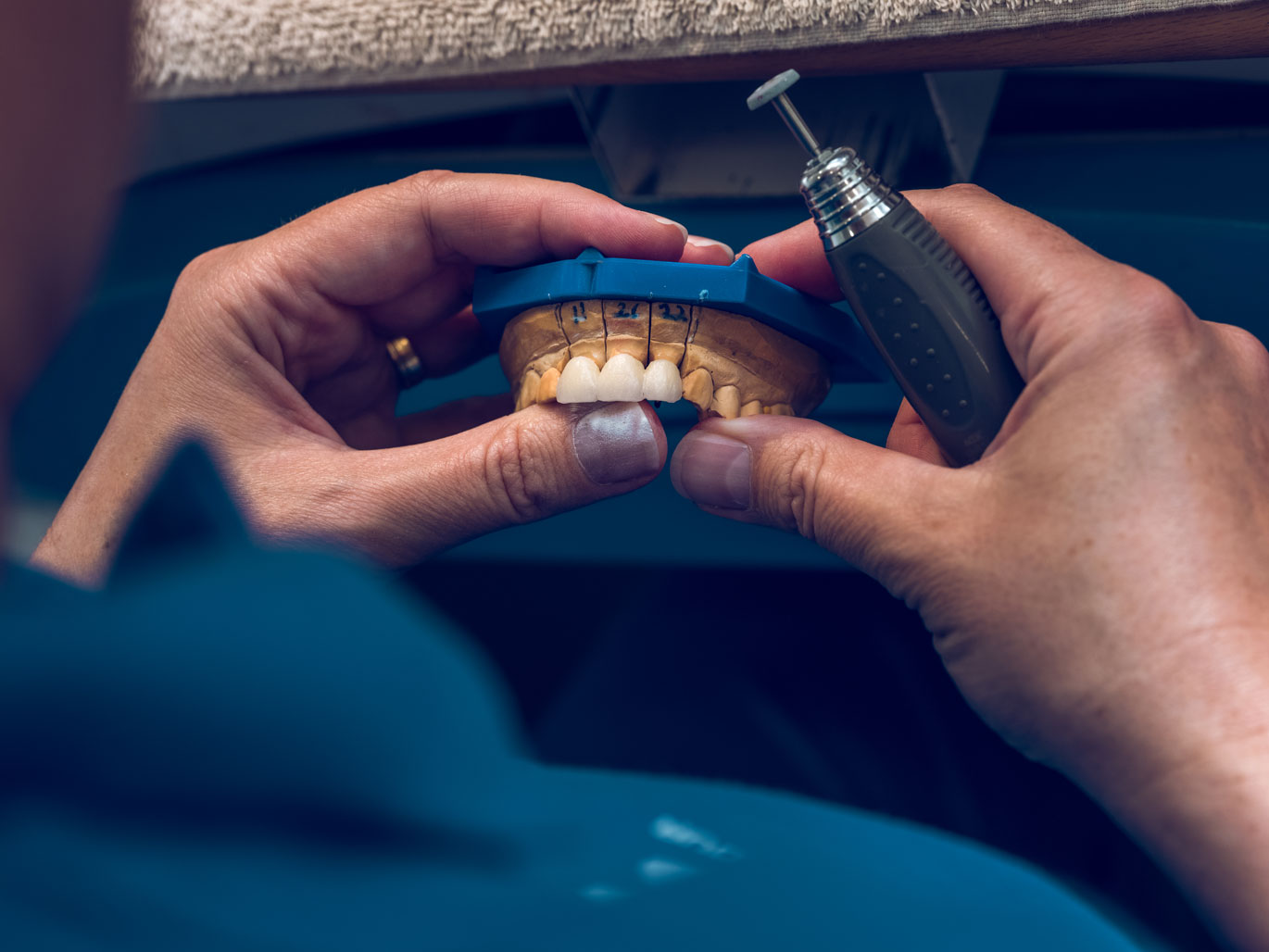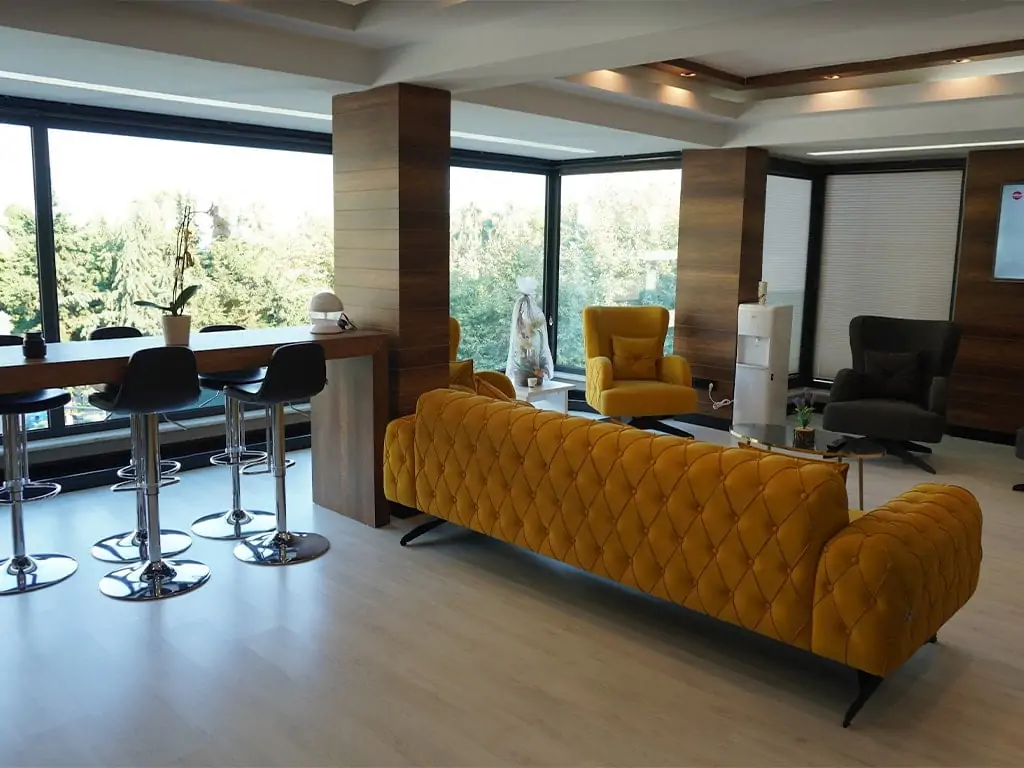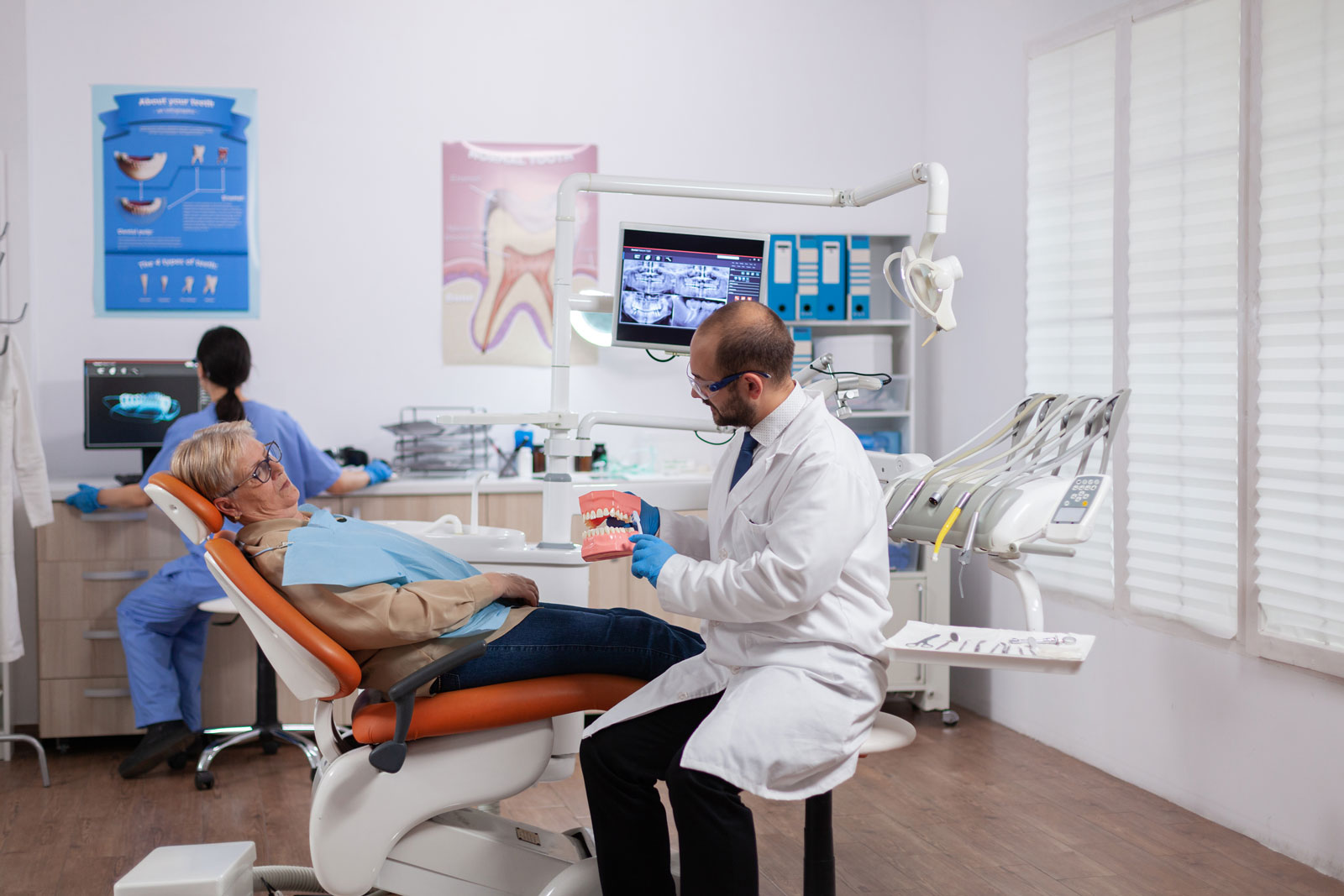Dental veneers are thin porcelain or composite resin layers applied to the front surface of teeth by dentists.
Veneers can be used to correct the shape, size, color, or alignment of teeth, cover broken, cracked, or decayed parts of teeth, or improve the appearance of teeth.
The application of dental veneers is usually a two-stage process. In the first stage, the dentist measures the size and shape of the tooth by removing a portion of the tooth for preparation.
Then the dentist takes a color sample to help the patient choose the desired color. In the second stage, the measurements for the veneers are prepared in the laboratory and then placed on the tooth by the dentist.
While dental veneers are typically used for aesthetic purposes by dentists, they can also be used to increase the durability of teeth.
However, the placement of dental veneers interferes with the natural structure of the tooth and is an irreversible process. Therefore, before performing dental veneer application, the dentist must inform the patient in detail about their expectations and risks.
What Are the Types of Dental Veneers?
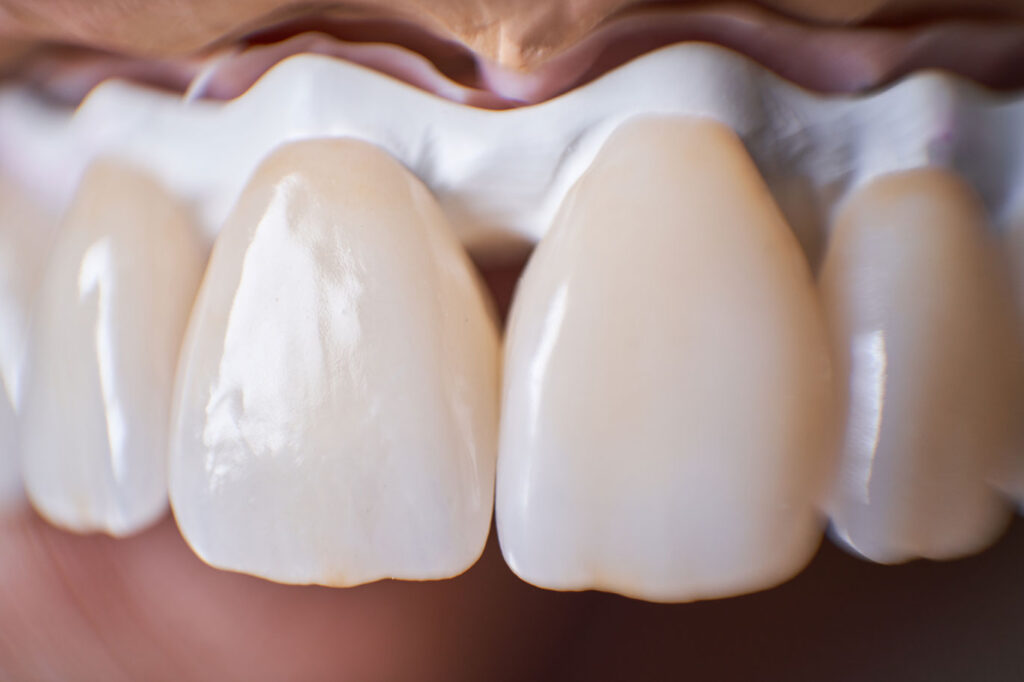
Dental veneers are typically made of porcelain or composite resin materials. Porcelain veneers provide a color closer to the natural tooth color and are more durable.
Composite resin veneers are more affordable and can be applied faster. Another type of veneer is zirconium veneers. Zirconium is a preferred material due to its durability and natural appearance.
Dental veneers are usually made from porcelain or composite materials. Both materials have their advantages and disadvantages, and the dentist and patient should decide together which material to use.
- Porcelain Veneers: Porcelain veneers are the most commonly used type of veneers. Porcelain is one of the materials that most closely resembles natural teeth and offers a color option close to the natural color of teeth. The advantages of porcelain veneers are as follows:
- Aesthetic appearance: Porcelain veneers are very successful in terms of aesthetic appearance because they look like natural teeth.
- Durability: Porcelain veneers are long-lasting and durable.
- Easy to clean: Porcelain veneers can be cleaned by regular brushing and flossing like natural teeth.
- Color options: Porcelain veneers offer many color options, and you can choose a color close to the natural color of teeth.
- Composite Veneers: Composite veneers are prepared in the dentist’s office and used to shape the natural tooth. The advantages of composite veneers are as follows:
- Less invasive: Composite veneer application damages the natural structure of teeth less.
- Faster: Composite veneers are prepared and applied in the dentist’s office, so they offer a faster solution.
- Less expensive: Composite veneers are a less expensive option compared to porcelain veneers.
- Color adjustment: Composite veneers can be color adjusted to match the natural color of teeth.
3. Metal-Supported Dental Crowns: A general term given to dental crowns whose surface is processed with metal and supported with ceramic coatings.
The decision of which material to make dental veneers from depends on many factors such as the patient’s dental structure, aesthetic preferences, and budget. After evaluating the patient’s condition. The dentist can make recommendations on which material to use.
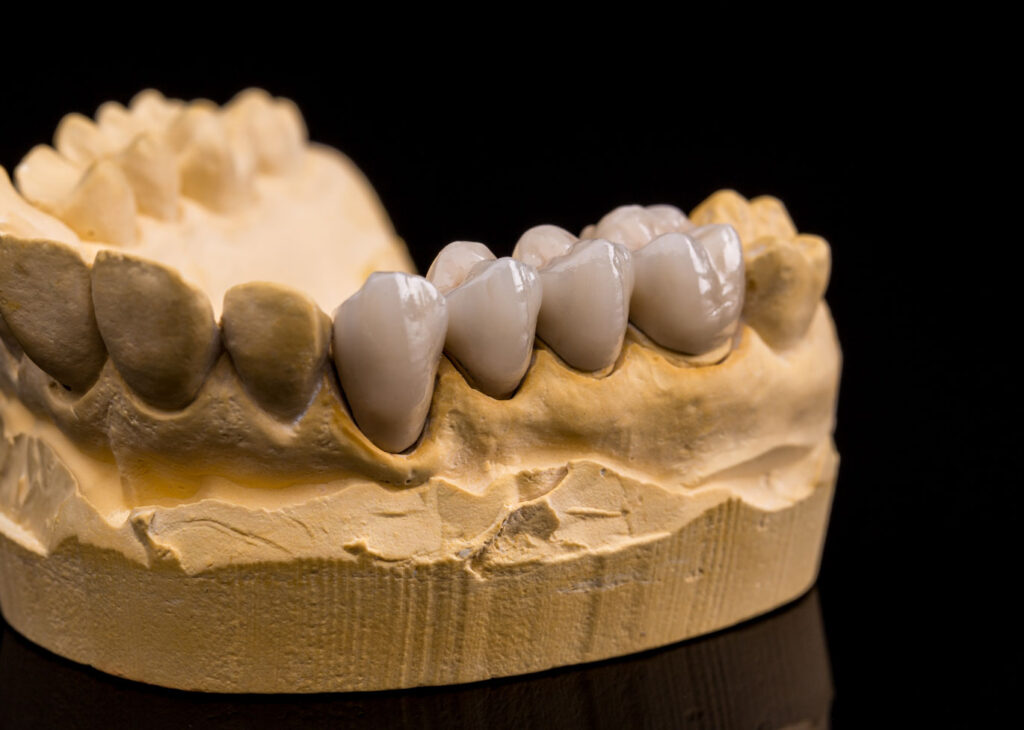
What Are the Advantages of Dental Veneers?
Dental veneers offer many advantages. Here are the most important advantages of dental veneers:
Aesthetic appearance: Dental veneers can be used to correct the color, size, shape, and alignment of teeth.
This eliminates aesthetic problems in teeth and creates a more beautiful appearance. Porcelain veneers look very similar to natural teeth and give very successful results in terms of aesthetic appearance.
Durability: Dental veneers are long-lasting and durable. With proper care, they can last up to 10 years. Porcelain veneers are particularly durable and designed to withstand the stress of chewing.
Easy to clean: Dental veneers can be cleaned by regular brushing and flossing like natural teeth. Additionally, dental veneers are more resistant to tooth decay and staining.
Repair of Dental Damage: Dental veneers can be used to correct cracks, chips, stains, and deformations on teeth surfaces. This way, the teeth can regain their old healthy appearance.
Minimally Invasive: Dental veneers require minimal preparation and are less invasive than other dental procedures such as dental crowns.
Fast and Effective: Dental veneers can be used to quickly and effectively address cosmetic dental problems. After taking measurements of the teeth, the dentist prepares veneers in a laboratory and applies them to the teeth, improving their aesthetic appearance in just one session.
More Confidence: Dental veneers can increase a person’s self-confidence by improving the aesthetic appearance of their teeth, resulting in a more beautiful smile. A more attractive smile can create a greater sense of self-confidence and self-assuredness.
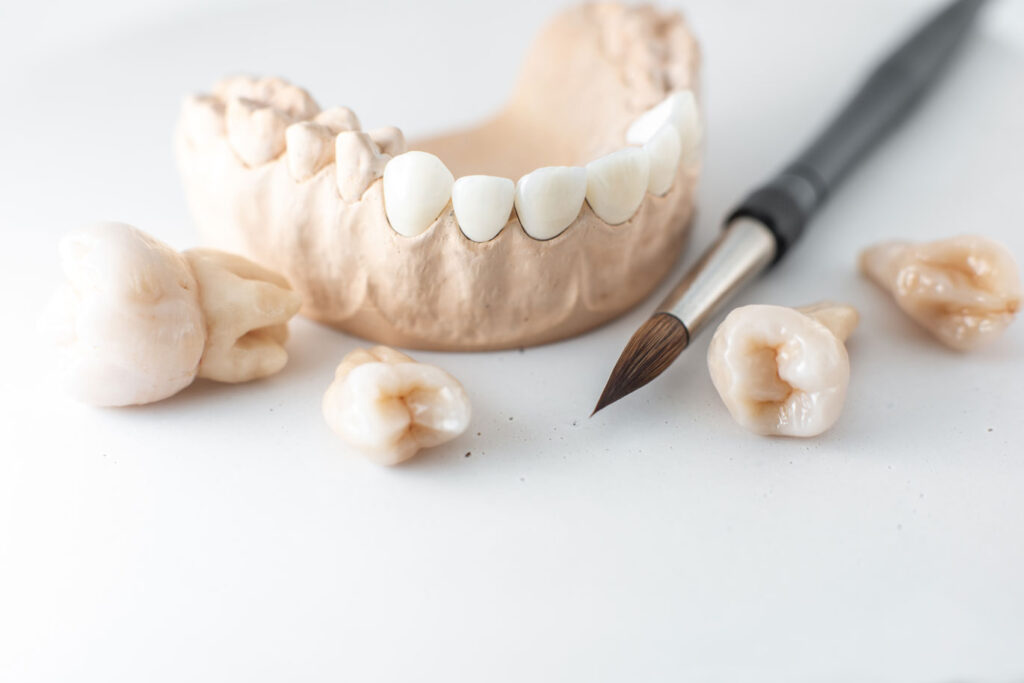
How Are Dental Veneers Applied?
The application of dental veneers is generally a two-stage process. In the first stage, the dentist removes a thin layer of the tooth and shapes it to fit the veneer.
Then, measurements of the tooth are taken, and the veneer is prepared in a laboratory.
In the second stage, the veneer is placed on the tooth and adhered to it. The dentist makes any necessary adjustments to ensure that the veneer matches the color and shape of the tooth.
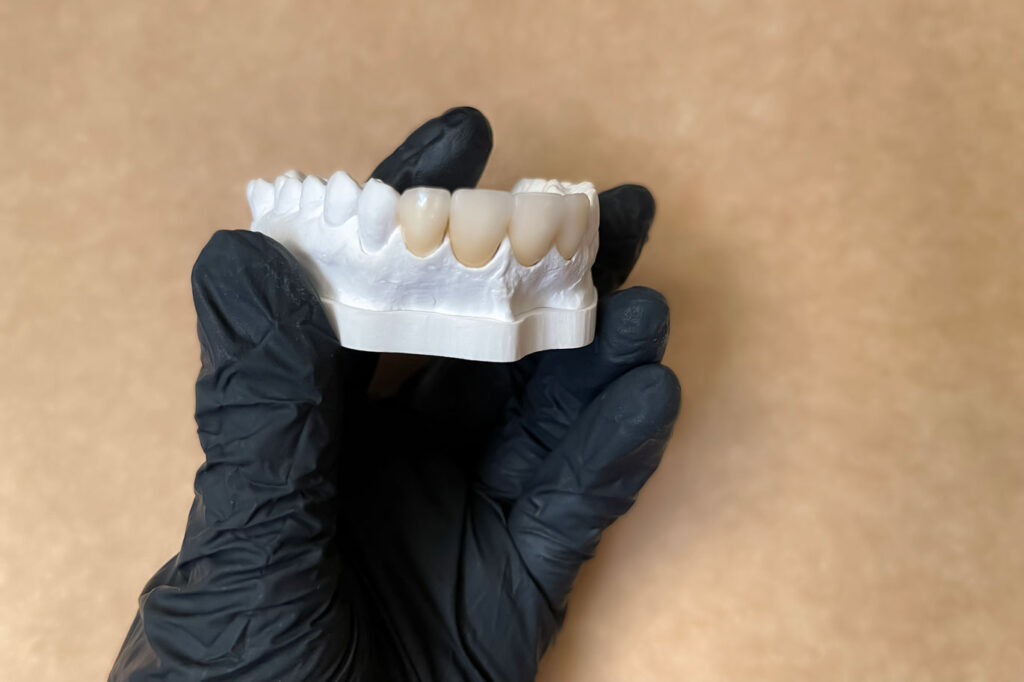
Dental Veneer Prices
The price of dental veneers can vary depending on many factors, such as the type of material used, the dentist’s experience and expertise, the location of the tooth, and the patient’s location.
Dental veneers are typically made of porcelain or composite material. Porcelain veneers are more durable and longer-lasting but also more expensive.
Composite veneers are less expensive but have a shorter lifespan.
On average, the cost of dental veneers ranges from 1,500 to 2,500 TL for porcelain veneers and 1,000 to 1,500 TL for composite veneers. However, the fees charged by dentists can vary depending on the location of the application, the method used, and the material used.
Therefore, it is recommended to discuss pricing in detail with the dentist before undergoing a dental veneer application.
To learn more about dental veneers and pricing, please use the WhatsApp button below.

